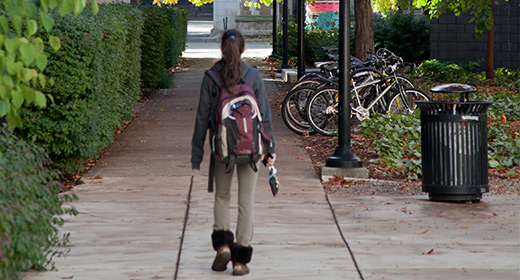
Student loan interest rates have risen from 3.86 to 4.66 percent this fall, and critics are arguing that the government should lower rates again or risk lower college attendance and more defaults on student debt. According to Susan Dynarski, though, lowering rates would be misguided. "Lower interest rates don't increase college attendance, and they are an expensive way to reduce defaults," writes Dynarski in an post, "Lowering Interest Rates on Loans Isn’t the Best Way to Help College Students," for The Upshot, The New York Times' curated blog on politics, policy, and economics.
Although cutting interest rates may seem like the best way to repair the damage student loan defaults have done to the economy, Dynarski writes, this is deceptive. Interest rates, whose effects are not felt until after a student has already graduated from college, probably do not affect individual students' decisions to attend college, and thus have little effect on whether or not students default years down the line. And while lowering interest rates across the board would lower defaults, it would be extremely expensive and would also disproportionately benefit high earners who have no difficulty repaying loans.
A cheaper and better solution to deal with student debt defaults, Dynarski argues, would be an income-contingent loan program, which would tie payments to a fixed percentage of the borrower's income. Under such a plan, students would not struggle with large monthly payments just after they graduated from college, when they were least able to pay, and interest rates would only affect the length of the repayment period, not the size of the monthly payments themselves. Other plans, according to Dynarski, are "poorly targeted."
Susan Dynarski is a professor of public policy at the Gerald R. Ford School of Public Policy, and a professor of education at the University of Michigan's School of Education. She is co-founder and co-director of the Ford School’s Education Policy Initiative, which engages in applied, policy-relevant education research designed to improve overall educational achievement and outcomes.